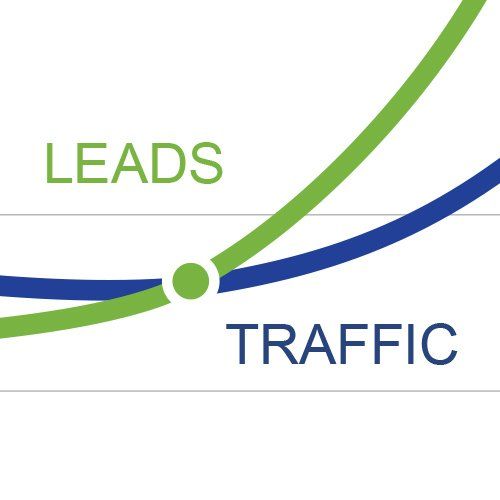How Effective Website Design Can Increase Diversity in Clinical Trials
By Jonathan Eilberg
Digital Marketing Consultant/Principal, Boston Web Partners
Increasing diversity in clinical trials is a major goal for researchers. But many biotech companies overlook an important tactic for appealing to a more diverse audience.

Recruiting enough patients to participate in clinical trials is a huge problem for biotech companies. Studies show that 80 percent of trials are closed or delayed due to problems with recruitment, and fewer than 10 percent of Americans enroll in clinical trials. The challenge is even more acute for rare disease research, which must recruit from small patient pools.
Participation in clinical trials is low for all demographic groups. But it's especially low among people in certain groups. For example, of the 32,000 patients in the U.S. who participated in novel drug trials in 2020, only 8 percent were Black/African American and 11 percent were Hispanic, according to the U.S. Food & Drug Administration.
Why does diversity in clinical trials matter? Because different groups can respond to medical therapies in different ways. For example, studies have found that women are more likely than men to experience adverse drug reactions because female bodies can take longer to eliminate drugs than male bodies. And Black Americans with hypertension may respond differently to blood pressure-lowering drugs than members of other racial groups.
A Historic Lack of Diversity
Traditionally, diversity has been a low priority in clinical trials. Much of the research that informs medical decision-making today was done primarily on white men, with the assumption that findings would also apply to women and non-white people.
Even now, as an understanding of the importance of diversity in clinical trials grows, huge gaps remain. For example, a recent analysis showed that although men and women have an equal risk of stroke, only 37% of participants in clinical trials of stroke treatments are female. Another analysis found that although Black adults are two times more likely to develop hypertension by middle age than white adults, only about 5 percent of hypertension clinical trials in recent years have focused specifically on black participants.
Unfortunately, researchers often struggle to increase diversity in clinical trials. Various barriers—including lack of information and awareness, financial and time constraints, and distrust of the medical system—stand in the way.
Designing a Solution
There's no simple resolution to this problem. But there is one relatively straightforward way for biotech clinical trial websites to appeal to a more diverse audience for clinical trial recruitment: Engage with a proven biotech digital marketing agency that knows how to implement smart website design.
While other biotech-centric web design agencies may be “aware” of the critical lack of diversity in clinical trials, Boston Web Partners is doing something about it. We understand how to use web design strategies to create clinical trial websites that appeal to the diverse audience with whom biotech firms want to engage.
Take a look at some of the ways Boston Web Partners can help you connect with a more diverse group of clinical trial subjects:
· Preparation: Before designing anything, we sit down with you to talk about all of your strategic goals. During this discussion, we make sure to identify and understand your demographic and diversity objectives.
· Look and feel: Once we start creating your web design, we keep your diversity goals front of mind. We use photographs, videos, patient stories, language, and design elements that reflect the identities and comfort levels of target demographic groups. We make sure your site is inclusive and welcoming.
· Building trust: You may want to include a direct appeal to target groups, with an explanation of why their participation matters to themselves and their demographic. Openness can help build trust, which is crucial because mistrust has been identified as a major barrier to clinical trial participation in some demographic groups.
· TrialAMPlify™ : Boston Web Partners is more than just a web design firm, we are a full service digital marketing agency. We employ our own unique method of spreading the word about your clinical trial across multiple channels using TrialAMPlify™. TrialAMPlify™ encompasses diversity-conscious search engine optimization (SEO) and usability best practices for targeting demographic groups to ensure high Google search rankings along with Google paid search ads, retargeting banners and social media. All this ensures your trial is found in the search engines and pushed across the entire digital ecosystem.
· Accessibility: Diversity-conscious web design prioritizes accessibility. An accessible site is more easily navigated by people with disabilities or with low technology literacy. We optimize accessibility with our choices of color, contrast between text and background, navigation strategies, and content flow. We also make sure calls to action are clear and easy to follow.
Design isn't just about making a clinical trial website look good. It can also help you achieve your diversity objectives, which can result in higher enrollment rates for clinical trials, stronger results, and better health outcomes for patients. View our Biotech Clinical Trial Case study here >>
Let's have a conversation about your clinical trial web marketing project. Contact Us for a FREE Consultation.
*TrialAMPlify is a trademark of Boston Web Partners LLC.
Let's Discuss Your Digital Marketing Project
Not in a rush? Fill out the contact form below with a better time, and we'll be in touch!
Spend 20 minutes on the phone with us to see if there's a fit.
(617) 419-0520
Not in a rush? Fill out the contact form below with a better time,
and we'll be in touch!
We will get back to you as soon as possible
Please try again later
About Us
Boston Web Partners is a full-service digital marketing agency focused on website design, SEO, SEM and brand visibility for B2B, High-Tech, Biotech & VC backed start-ups worldwide.
© 2024 Boston Web Partners, LLC.
All Rights Reserved.












